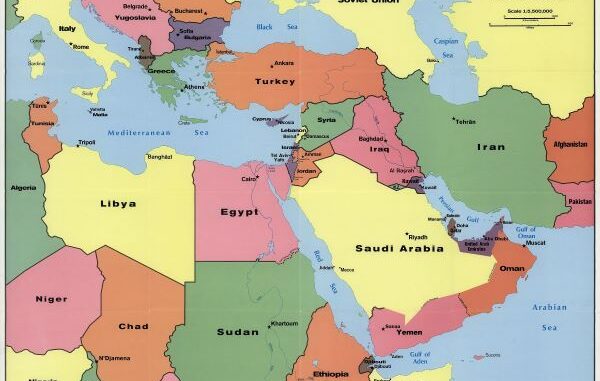
Relentless grim news from Gaza has shifted the outlook of people across the Middle East and North Africa. US and European weapons have rained down on defenceless Palestinians while food and medical supplies are blockaded. This is shattering imperialist powers’ support in the region, whose dominating influence has propped up repressive regimes for years. NGOs seen as supported by the US and Europe are also experiencing increased suspicion and hostility.
Opinion polls must always be treated with caution. Results depend on who is asking questions, their wording and who gets asked. Keeping this in mind, the results of recent surveys point to profound shifts of opinion.
The Arab Center Washington DC surveyed 8000 people in 16 Arabic countries. 76% reported that their attitude to the US had become more negative since the war on Gaza. 19% said their position had not changed, and just 1% reported that their position had become more positive. Overall, 82% saw the US response as “very bad” and another 12% as “bad.” (8.2.24)
The Arab Barometer found Tunisians ‘looking favourably’ at the US dropped from 40% to just 10% in a matter of weeks before and after October 7, while France fell from 52% to 38%. At the same time, the standing of China improved by 5% while Russia remained basically the same, falling 3%. (4.3.24)
In a Washington Institute poll conducted last November/ December, 57% of Egyptians agreed, “We cannot count on the U.S. these days, so we should look more to other nations like Russia or China as partners,” while 42% disagreed. (1.2.24)
The proportion of Egyptians with positive views of Hamas increased from 23% in November 2020 to 75% in November/December 2023. 86% disagreed with the statement that “Hamas should stop calling for the destruction of Israel and instead accept a permanent two-state solution to the conflict based on the 1967 borders.” 94% believed Hamas did not kill civilians on October 7th.
However, support in Egypt for the Muslim Brotherhood, from where Hamas’ roots can be traced, has fallen further – from 23% in November 2020 to 11% in November/ December 2023. Support for Hezbollah and Iran has also fallen; 79% having a negative view of Iran’s proxy militia in Lebanon. The Houthis also attracted negative views, although their attacks on shipping in the Red Sea came too late to affect this opinion poll.
Increasing poverty in Tunisia
Just one in ten Tunisians rate the economy as good. Economic optimism has fallen 14% since 2021. Hunger has also increased dramatically since then. Two thirds of Tunisians say they have gone without food at least once in the previous month. Government mismanagement is most seen as the source of food insecurity.
Just over a third of Tunisians have confidence in the government, although support for President Saied remains around three quarters, down 6% in the past two years. Only a third are satisfied with health or education services, and less than a quarter with the state of the economy, addressing inequality, creating jobs or inflation.
Independent workers’ organisations needed
Opinion polls can give contradictory results, depending on how questions are phrased. Despite the upsurge in support for Hamas, 86% of Egyptians believed ‘the conflict with Israel cannot be resolved militarily but politically’. ‘What type of politics would be needed?’ was not asked. Events since October 7th, and for decades before then, show Middle East ruling classes and their imperialist backers cannot find a political or military way out of the unending cycle of wars and continuing poverty and repression.
US universities and think tanks don’t ask workers whether they want independent trade unions, their own political parties, and democratic rights to fight for decent living standards. Democratic workers’ organisations, with socialist programmes to meet the needs of the working class and poor, calling for action to challenge their corrupt and wealthy rulers would change the situation dramatically.
That goes for Israel as well. Workers acting against the Netanyahu government and Israeli capitalism would change the landscape across the region. Opinion polls don’t show how views rapidly change when the working class starts moving into action and demonstrates its power to shake authoritarian rulers from their luxury perches, along with their big business backers.
The 2011 uprisings across the region showed how the movement spread within weeks from Tunisia to Egypt and beyond. Israeli youth and workers were also inspired, with demonstrations that summer of hundreds of thousands.
Workers’ governments, beginning to democratically plan resources and economies in the interests of the majority – the working class and poor instead of the super-rich capitalist elites – could then start to negotiate for a socialist Palestine and Israel, free from occupation, inequality, and poverty. Issues like borders, the right to return, a shared capital, access to water and resources, and security will never be resolved under capitalism.
